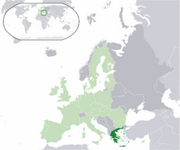Events
1046 - Naser Khosrow begins the seven-year Middle Eastern journey which he will later describe in his book Safarnama.
1496 - King Henry VII of England issues letters patent to John Cabot and his sons, authorising them to explore unknown lands.
1689 - Daniel Finch, 2nd Earl of Nottingham is named Secretary of State for the Northern Department.
1766 - Antonio de Ulloa, the first Spanish governor of Louisiana, arrives in New Orleans.
1770 - Boston Massacre: Five Americans, including a black man named Crispus Attucks, and a boy, are killed by British troops in an event that would contribute to the outbreak of the American Revolutionary War five years later.
1784 - Thomas Townshend, 1st Viscount Sydney is named President of the Board of Trade.
1824 - First Burmese War: The British officially declare war on Burma.
1836 - Samuel Colt makes the first production-model revolver, the .34-caliber.
1848 - Louis Antoine Garnier-Pages is named French minister of Finance.
1850 - The Britannia Bridge across the Menai Strait between the Isle of Anglesey and the mainland of Wales is opened.
1860 - Parma, Tuscany, Modena and Romagna vote in referendums to join the Kingdom of Sardinia.
1868 - Mefistofele, an opera by Arrigo Boito receives its première performance at La Scala.
1868 - A court of impeachment is organized in the United States Senate to hear charges against President Andrew Johnson.
1872 - George Westinghouse patents the air brake.
1894 - Archibald Philip Primrose, 5th Earl of Rosebery becomes First Lord of the Treasury.
1904 - Nikola Tesla, in Electrical World and Engineer, describes the process of the ball lightning formation.
1912 - Italian forces are the first to use airships for military purposes, using them for reconnaissance behind Turkish lines.
1933 - Great Depression: President Franklin D. Roosevelt declares a "bank holiday", closing all U.S. banks and freezing all financial transactions.
1940 - Members of Soviet politburo sign an order for the execution of 25,700 Polish intelligentsia, including 14,700 Polish POWs, known also as the Katyn massacre.
1942 - United States Navy Seabees established.
1943 - First flight of Gloster Meteor jet aircraft in the United Kingdom.
1946 - Winston Churchill uses the phrase "Iron Curtain" in his speech at Westminster College, Missouri.
1946 - Hungarian Communists and Social Democrats co-found the Left Bloc.
1949 - The Jharkhand Party is founded in India.
1953 - Soviet dictator Joseph Stalin died at age 73.
1958 - The Explorer 2 spacecraft launches and fails to reach Earth orbit.
1960 - The Aquatic Ape Hypothesis originates when Alister Hardy publicly announces his idea that ape-human divergence may have been due to a coastal phase.
1965 - March Intifada: A Leftist uprising erupts in Bahrain against British colonial presence.
1966 - BOAC Flight 911 crashes on Mount Fuji, Japan, killing 124.
1970 - The Nuclear Non-Proliferation Treaty goes into effect after ratification by 43 nations.
1973 - Donald DeFreeze, the future Symbionese Liberation Army leader, escapes from Vacaville Prison.
1974 - Yom Kippur War: Israeli forces withdraw from the west bank of the Suez Canal.
1975 - First meeting of the Homebrew Computer Club
1978 - The Landsat 3 is launched from Vandenberg Air Force Base in California.
1979 - Soviet probes Venera 11, Venera 12 and the American solar satellite Helios 2 all are hit by "off the scale" gamma rays leading to the discovery of soft gamma repeaters.
1979 - Voyager 1's closest approach to Jupiter, 172,000 miles.
1982 - Venera 14, a Soviet satellite, arrives at the planet Venus.
1984 - 6,000 Miners in the United Kingdom begin their historic strike at Cortonwood Colliery.
1988 - Constitution of Turks and Caicos Islands is restored and revised.
1999 - Paul Okalik is elected first Premier of Nunavut.
2001 - In Mecca, 35 Muslim pilgrims are crushed to death during the annual Hajj pilgrimage.
2003 - In Haifa, 17 Israeli civilians are killed by a Hamas suicide bomb in the Haifa bus 37 massacre.


 Po polsku
Po polsku
 Auf Deutsch
Auf Deutsch
 En Française
En Française
 En Español
En Español
 На Русском
На Русском
 在中國
在中國




